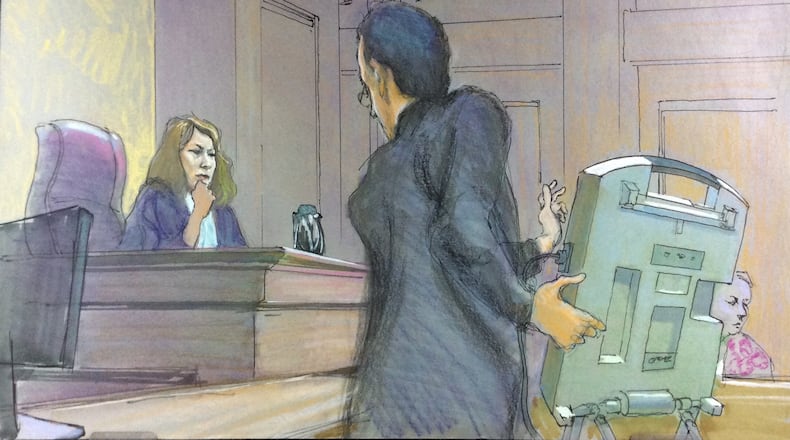Georgia is a battleground in this year’s elections, and that means voters, nonprofit organizations and politicians are lining up to litigate every vote.
Court orders could require more ballots to be counted, hold polling places open or change requirements for verifying voters. Judges may also uphold Georgia laws and procedures that dictate how to run elections.
Here’s a look at some of the biggest legal issues in Georgia that will be fought before and after Election Day on Nov. 3:
Absentee ballot deadline
A federal judge recently extended the deadline for absentee ballots to be returned, but Secretary of State Brad Raffensperger is appealing that decision.
U.S. District Judge Eleanor Ross ordered election officials to count absentee ballots if they’re postmarked by Election Day and received at county election offices within three days. The decision could result in tens of thousands more ballots being counted that would otherwise be rejected under a state law that set a 7 p.m. Election Day deadline for absentee ballots to be returned.
Attorneys for Raffensperger said the decision would delay election results, confuse voters and reduce the time voters have to correct problems with their absentee ballots.
Election security
A long-running lawsuit is seeking to replace Georgia’s voting equipment with hand-marked paper ballots. The lawsuit, heard in federal court Thursday and Friday, alleges that the state’s voting system, which combines touchscreens and printed-out paper ballots, fails to protect votes from tampering or computer errors.
A judge ruled against a similar effort last year but considered it again before an expected 5 million voters begin casting ballots.
Election officials say Georgia’s new voting system creates a paper ballot for the first time in 18 years, replacing electronic voting machines that lacked a paper trail.
Rejected absentee ballots
If the election for governor two years ago is any guide, plaintiffs will turn to the courts again this November to count more absentee and provisional ballots.
Ballots can be rejected when ballots arrive late, voter signatures don’t match or voters aren’t eligible. Provisional ballots are issued to voters whose registration information couldn’t be immediately confirmed, or those who show up at the wrong polling place.
The courts could be asked to intervene to ensure voters have more time to correct errors or to order election officials to count questioned ballots.
Long lines
A lawsuit filed after some voters waited in lines for hours in Georgia’s June 9 primary is asking a judge to prevent a repeat in November, when turnout is expected to exceed 5 million.
The lawsuit by the Democratic Party and three voters is seeking a court order that would require more polling places, better-trained poll workers, a sufficient number of voting machines and emergency paper ballots.
A judge hasn’t yet set a court date, but it could be heard in the next few weeks.
Systemic problems
A case filed by Fair Fight Action after the 2018 election demands sweeping changes in ballot access, vote counting and voter registration.
The lawsuit alleges that Georgia elections disenfranchise voters and need a judge’s oversight. The secretary of state’s office responded that recently passed election laws correct many of the problems and that elections are accessible through absentee, early and Election Day voting.
A spokesman for Fair Fight Action said the voting rights group is ready to take “whatever legal action is necessary” to ensure voters' ballots are counted in November.
About the Author
Keep Reading
The Latest
Featured




